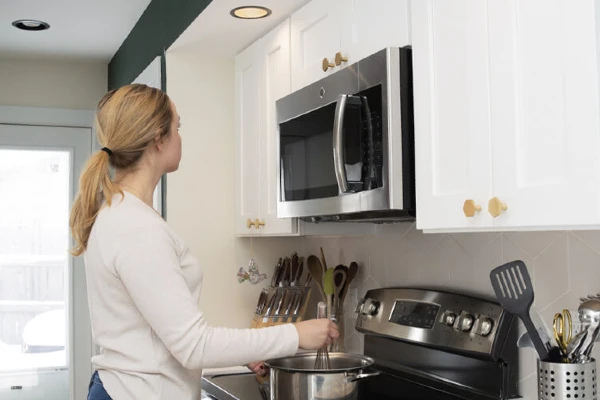Is It Bad If My House Lights Dim when I Turn on Appliances?
While you may be tempted to have your eyes checked, there is more likely another explanation for why the lights in your home appear to dim every now and then. If you find this phenomenon occurs most often when you power on one or more of your appliances there may be a simple fix, or it may be a sign of a more serious issue that could be a fire safety hazard. Read on to learn why house lights dim when appliances turn on, and what you can do to protect your home and family.
Why Do My Lights Dim When I Turn On Appliances?
There are a number of DIY projects that handy homeowners can tackle on their own, but when it comes to electrical issues, the diagnosis and repair are best left to the experts. Here are some common causes of lights dimming along with tips to help you troubleshoot and find the right resolution to the problem. Do yourself and your home a favour, and don't ignore the issue.
Overloaded Circuits
Residential electrical circuits are limited in the amount of power they can each draw, and once the demand on a circuit has been exceeded it becomes overloaded. This is the most common cause of lights dimming in homes and is relatively simple to test. If your lights dim when your air conditioner, clothes dryer, or microwave turn on, check to see if the light in question is on the same circuit. Larger, fixed appliances should be placed on a dedicated circuit to avoid this issue, and Mr. Appliance® has a list of more appliance safety tips to ensure the safety of your home and family.
Improper or Faulty Wiring
Older homes with dated wiring may be unable to keep up the demands placed on them by modern-day appliances and electronics. Damaged or poorly installed wiring poses an equal risk, and if any of these are the cause of lights dimming in your home it's imperative that you have a licensed electrician inspect your electrical system as soon as possible. Wiring that is corroded, frayed, loose, or improperly installed can cause dimming, but may also pose a risk of fire or electrocution.
Power Grid Issues
If you are asking yourself, "Why do my lights dim when I turn on appliances?" there may be an issue with the power grid in your neighbourhood. Abnormalities within the grid itself can impact the lighting in your home and may be caused by an increased demand on your local resources.
Old Bulbs
As your lightbulbs approach the end of their lifespan, the intensity starts to lessen as components weaken or fail. The filaments inside incandescent bulbs can become brittle, resulting in a flickering of the light, and this issue can easily be rectified by removing the older bulb and replacing it with a new one.
Corroded or Loose Neutral Wire
One or more lighting fixtures consistently fluctuating between bright and dim is a safety concern that may result in a fire, and is most likely caused by a corroded or loose neutral wire at the main breaker and is unrelated to your appliance usage. Contact your local power company or a licensed electrician for a more accurate diagnosis and repair.


